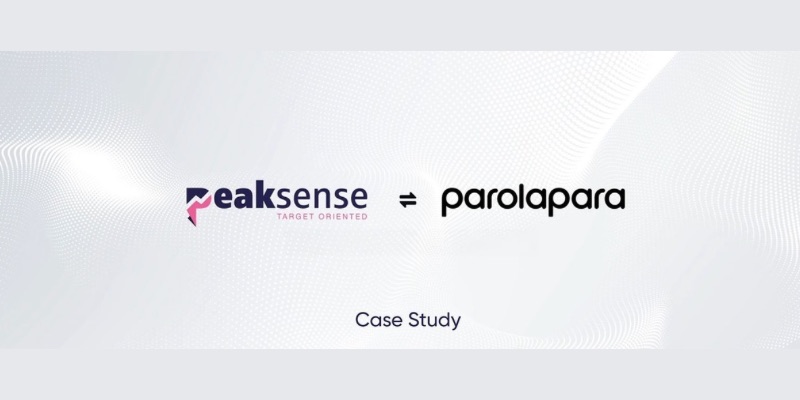Why Branding is More Than Just a Logo for Cybersecurity Businesses
June 12, 2024, 5 min read
Branding is a multifaceted concept that extends far beyond a company’s logo. Effective branding is critical for cybersecurity businesses to build trust, establish authority, and differentiate from competitors. This article explores why branding is more than just a logo and emphasizes the importance of a comprehensive brand strategy in the cybersecurity industry.
1. Branding Extends Beyond a Logo
Branding extends beyond a logo to embody a business’s identity, values, and customer promise. It shapes perceptions, builds recognition, and fosters loyalty, significantly impacting customer decisions and business success.
In cybersecurity, branding is pivotal in conveying trust, expertise, and reliability. While a logo is an essential component of brand identity, it represents only a fraction of what constitutes effective branding. This article delves into the comprehensive nature of branding and its significance for cybersecurity businesses.
2. The Importance of Branding in Cybersecurity
Branding in cybersecurity is crucial for several reasons:
- Building Trust: Trust is paramount in an industry focused on protection and security. A strong brand conveys reliability and competence.
- Establishing Authority: Effective branding positions your company as a leader and expert in the field, which is essential for gaining the confidence of potential clients.
- Creating Differentiation: With numerous cybersecurity firms in the market, strong branding helps your business stand out.
- Fostering Loyalty: A well-developed brand can foster customer loyalty and long-term relationships.
3. Elements of Effective Branding
Effective branding encompasses several elements beyond just a logo. Here, we explore the key components:
Brand Identity
Brand identity includes all the visual elements representing your brand, such as the logo, color scheme, typography, and design style. While a logo is integral to this, brand identity also involves creating a cohesive visual language that reflects your company’s values and mission.
Brand Positioning
Brand positioning refers to how you differentiate your brand in the minds of your target audience. It involves identifying your unique value proposition and communicating it effectively with your PR agency. For cybersecurity firms, this might involve highlighting specialized services, unique technologies, or a particular approach to security.
Brand Values and Mission
Your brand values and mission define your company’s purpose beyond profit. In the cybersecurity industry, values such as integrity, innovation, and customer-centricity are critical. These values help build a connection with clients who share similar principles.
Brand Voice and Messaging
Brand voice and messaging encompass the tone and style of your communication across all channels. Whether through blog posts, social media, or customer service interactions, maintaining a consistent brand voice helps reinforce your brand identity and ensures your messaging resonates with your audience.
4. Building Trust and Credibility
In cybersecurity, trust and credibility are fundamental. Here’s how effective branding helps build these critical attributes:
- Professionalism: A well-designed brand identity, including a polished logo, professional website, and consistent design elements, conveys professionalism and reliability.
- Transparency: Clear and honest communication about your services, pricing, and data protection practices builds trust with your clients.
- Customer Testimonials and Case Studies: Showcasing positive feedback and success stories from satisfied clients reinforces your credibility and demonstrates your expertise.
5. Differentiating in a Competitive Market
The cybersecurity market is highly competitive, with numerous companies offering similar services. Effective branding and creative B2B marketing strategies help you stand out by:
- Highlighting Unique Selling Points: Communicate what makes your services unique, whether it’s advanced technology, exceptional customer support, or industry-specific expertise.
- Consistent Branding Across Channels: Ensure that your brand identity and messaging are consistent across all touchpoints, from your website to social media and marketing materials.
- Engaging Content: Create valuable and informative content that addresses the pain points of your target audience and showcases your knowledge and expertise.
6. Enhancing Customer Loyalty
Strong branding fosters customer loyalty by connecting your brand with your clients. Here’s how:
- Consistent ExpHere’se: A consistent and positive experience across all interactions helps build trust and loyalty.
- Emotional Connection: Brands that connect with customers emotionally are more likely to foster long-term loyalty. It highlights your commitment to protecting your clients’ data and supporting their business clients through this connection.
- Rewards and Recognition: Implementing loyalty programs or recognizing loyal customers can reinforce positive relationships and encourage repeat business.
7. Branding in Digital Channels
In today’s digital age, a significant portion of today’s efforts take place online. Here are some key strategies for effective digital branding:
- Website: Your website is often the first point of contact with potential clients. Ensure it is visually appealing, easy to navigate, and provides comprehensive information about your services.
- Social Media: Use social media platforms to engage with your audience, share valuable content, and showcase your brand’s personality.
- SEO: Optimize your online brand to rank well in search engine results. This involves using relevant keywords, creating high-quality content, and ensuring your website is technically sound.
- Email Marketing: Regularly communicate with your clients through newsletters, updates, and personalized messages.
8. Practical Tips for Cybersecurity Branding
Here are some practical tips to help you develop and maintain a strong brand for your cybersecurity business:
- Define Your Brand Strategy: Define your brand’s mission, values, and unique selling points. Develop a comprehensive strategy outlining how to communicate these elements to your audience.
- Invest in Professional Design: Work with professional designers to create a cohesive and visually appealing brand identity.
- Maintain Consistency: Ensure your brand identity, voice, and messaging are consistent across all channels and touchpoints.
- Engage with Your Audience: Regularly interact with your audience through social media, email, and other channels. Listen to their feedback and adapt your branding efforts accordingly.
- Stay Updated: The cybersecurity industry is constantly evolving. Stay updated on the latest trends, threats, and technologies, and ensure your branding reflects your expertise and relevance.
- Measure and Adjust: Regularly measure the effectiveness of your branding efforts using metrics such as website traffic, social media engagement, and customer feedback. Use these insights to make necessary adjustments and improvements.
9. Conclusion
Branding in cybersecurity is much more than just a logo. It encompasses a comprehensive strategy that includes brand identity, positioning, values, and messaging. Effective branding builds trust and credibility, differentiates your business in a competitive market, and fosters customer loyalty. By leveraging digital channels and maintaining consistency, cybersecurity businesses can create a solid and memorable brand that resonates with their target audience.
Staying ahead in the ever-changing cybersecurity landscape requires more than just technical expertise. A well-defined and executed brand strategy can set your business apart, establishing you as a trusted and authoritative figure in the industry. By focusing on the broader aspects of branding, you can create lasting relationships with your clients and drive long-term success for your cybersecurity business.
By implementing these strategies and focusing on branding’s comprehensive nature, you can effectively position your cybersecurity business for success in a competitive and dynamic market. Remember, your brand is more than just a logo—it’s the entire experience and perception clients and prospects have of your company.
In a related blog, you can have a look at Melotti media.




























